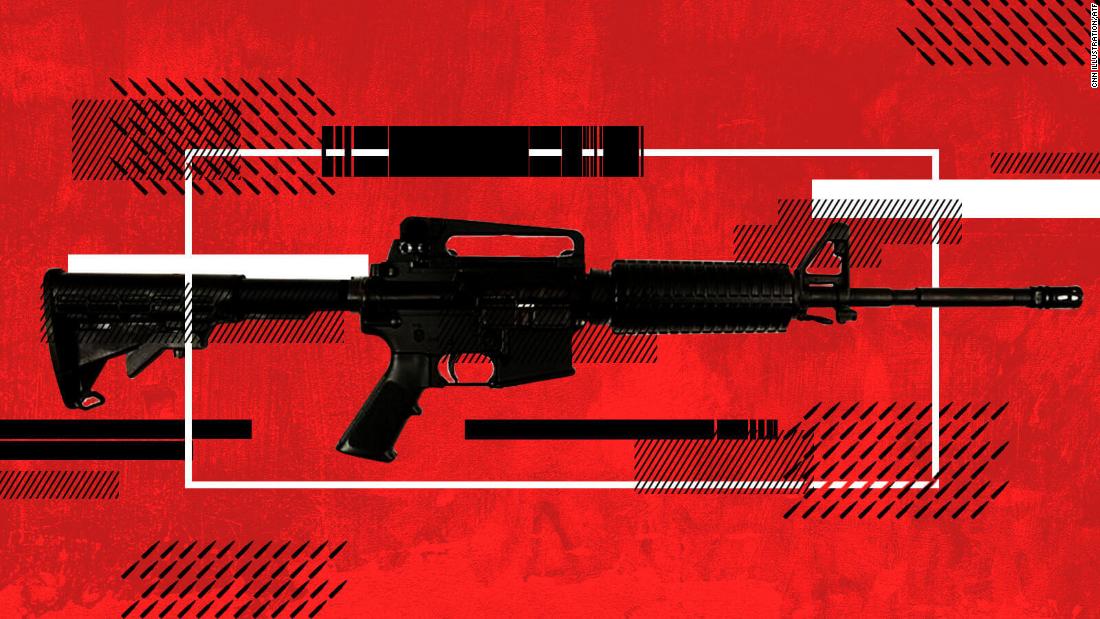As he clutched the steering wheel of his moms Honda Civic, Easy Chang could feel the anger welling inside him, piercing the haze of Xanax from the pill hed popped earlier.
A man in a crosswalk had just shouted a profanity at him after Chang sped past, coming too close for the mans comfort.
Chang turned the car around and reached for the Smith & Wesson .38 he had with him that day.
He took aim, squeezed the trigger, drove closer, then fired again.
Tarek Oueslati, an engineering student, collapsed on Golden Gate Avenue in San Francisco. He was shot through the chest.
Chang, 25, sped away, leaving him for dead.
Four years later, Chang is now repentant. He says its a crime he would not have committed if the gun had been registered in his name.
“Theres a market for that – people that dont want paper trails. You know what I mean?” he told CNN. “With legal guns, youre always thinking This guns on paper. This guns on paper. … You have to think twice before you do anything.”
A CNN investigation into the unregulated sale of firearms found that unlicensed dealers flout the nations gun laws and provide a steady flow of weapons to people like Chang, who are either barred from owning guns, or want guns that cant be traced back to them.
Unlicensed dealers are difficult to detect, tough to prosecute, and often receive lenient sentences even when convicted, according to interviews with more than a dozen current and former federal agents and prosecutors across the country.
“I know from my own personal experience as an investigator that a lot of firearms that Ive seen recovered in violent crimes have come through the hands of unlicensed dealers,” said Thomas Chittum, a veteran agent and top supervisor at the headquarters for the Bureau of Alcohol, Tobacco, Firearms and Explosives in Washington, DC.
“Some get prosecuted,” Chittum said. “I would say most do not.”
At the heart of the problem is a vaguely worded federal statute that has frustrated efforts by law enforcement to combat the problem of illegal gun dealing, and effectively helps sustain a marketplace for black market gun sales. The law is fuzzy on the distinction between a casual seller of firearms who is not required to conduct background checks on prospective buyers and a gun dealer, who is.
Its a problem that law enforcement officials and gun control advocates say would be greatly mitigated by the passage of proposed universal background check legislation that passed in the House last month. The issue could come up in the Senate next week, when the judiciary committee is scheduled to hold a hearing on another gun control measure.
CNN reviewed dozens of cases of illegal dealing across the country, including some in which sellers were warned by the ATF that they might be breaking the law, but continued selling firearms nonetheless.
Coming Monday[hhmc]
The sellers were in many cases unlikely suspects: upstanding, seemingly law-abiding citizens with no previous criminal record. Among them were police officers, federal agents, a fire department captain and a defense department employee with a national security clearance.
Guns that passed through the hands of unlicensed dealers have turned up at crime scenes and in police investigations from coast to coast, CNN found, including cases of armed robbery, carjacking and murder.
The story of how Easy Chang got his gun cuts across American society. It brings together a diverse cast of characters, including a pair of convicted felons from San Francisco, members of a prominent wheat-farming family from Washington State and a high school softball “coach of the year” turned would-be government witness.
There are allegations of clandestine deals involving duffel bags full of weapons traded for envelopes stuffed with cash, and of gun after gun turning up in the wrong hands.
Chang, a former US Marine who is now a bartender in San Francisco, has never spoken publicly about the case, until now.
Cease and desist
More than 800 miles to the north of the spot where Oueslati fell to the pavement in San Francisco lies the tiny town of Coulee City, Washington. Its a farming community of a few hundred people, about two hours west of Spokane, a place of dirt roads, rolling wheat fields, pick-up trucks, tractors and cowboy hats.
Everyone knows everyone, and the Hunt family is a part of the towns fabric.
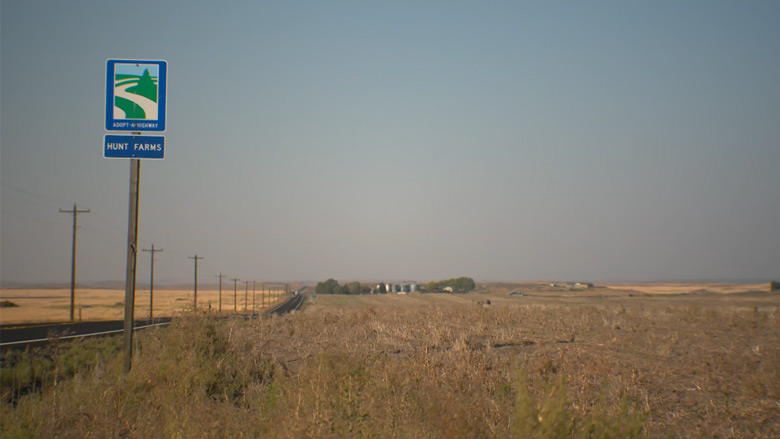
Terry Hunt, the family patriarch, served for years as master of The Washington State Grange, a statewide charitable organization with an emphasis on service to the agricultural community. His wife, Mary, served three terms as an elected county commissioner from 1998 to 2010.
The family owns and operates a sprawling, 25,000-acre wheat and cattle ranch and one of their adult sons, Rusty, runs a game hunting guide service for “trophy deer,” pheasant and other animals on the property.
The Hunts also bought and sold guns – lots of them. Theyd been doing it for years. Terry Hunt would buy weapons in Washington state at a discount, then sell them at a gun show held several times a year in Reno, Nevada.
In April of 2012 – more than two years before Oueslati was shot – Terry Hunt got a visit from an ATF agent.
The agent told Hunt that “his buying and selling of firearms had brought him to the attention of the ATF as someone who is dealing in firearms without a license,” according to a federal search warrant affidavit recounting the conversation.
Under federal law, gun dealers are required to be licensed. They are required to conduct background checks on prospective customers and to maintain records on all weapons they acquire and sell. The background check component of the law is designed to ensure that dealers dont sell to convicted felons, domestic abusers or people who are mentally unstable.
The agent, Heidi Wallace, told Hunt that some of his guns had been recovered at crime scenes in California. She asked him about a pair of hand guns hed bought in 2008 and 2010 that were later seized by the FBI in San Francisco.
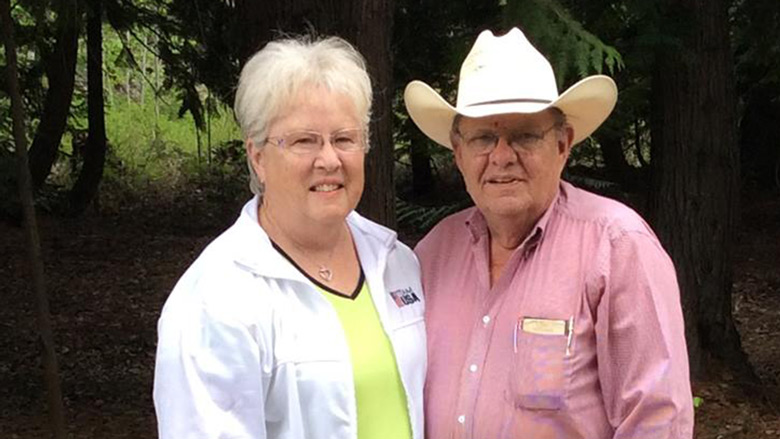
Hunt told Wallace he didnt remember to whom hed sold the guns, but acknowledged selling weapons at the Big Reno gun show – an event frequented by residents of California, which has much stricter gun laws than Nevada.
“Terry Hunt stated he didnt think it was his problem whether someone from California could have a gun or not, that it was up [to the] purchaser to know what they can do,” according to the affidavit.
Hunt told the agent he would probably do the next three gun shows in Reno then call it quits. She countered that he could not continue doing business as hed done in the past.
As a private citizen without a federal firearms license, Wallace explained, he was prohibited from buying weapons under his own name with the intent of selling them to someone else, the affidavit states. This is something only licensed dealers are permitted to do, she said. She added that it was a violation of federal law for him to sell guns to anyone who was not a resident of his own state.
She then handed Hunt a letter. It was entitled “WARNING NOTICE OF UNLICENSED FIREARMS DEALING VIOLATION.”
“This letter serves to officially advise you to cease and desist engaging in the business of dealing in firearms until you have sought and obtained a Federal firearms license,” it read.
Wallace then handed Hunt an application to become a licensed federal firearms dealer, according to the affidavit.
The wording of a question in the four-page document would later prove problematic for the government.
An empty gun box
The assault on Oueslati made headlines in the Bay Area: It was a shocking crime, a brazen road rage attack that stood in stark contrast to the citys tranquil vibe. It was carried out just a few blocks from a row of iconic Victorian homes, known as the Painted Ladies, often featured in postcards of the citys skyline. One witness told police the shooter smiled as he opened fire.
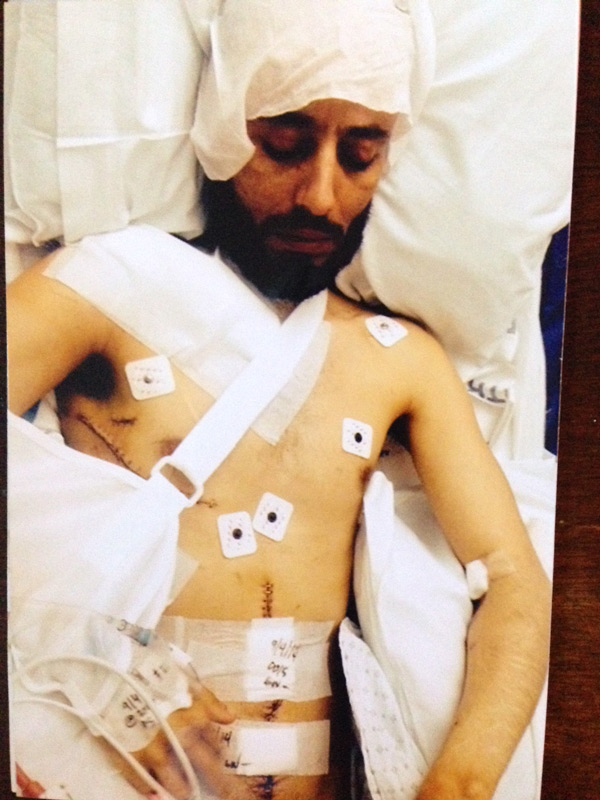
For weeks, as Oueslati recovered in the hospital, the case went unsolved. Then police caught a break. An alert SFPD sergeant, Thomas Ly, spotted a gray Honda Civic similar to the one that appeared in security camera footage that captured parts of the incident.
Ly ran the license plate, which was registered to a woman who lived with her two sons about six blocks from where Oueslati was shot. Ly then compared pictures of the sons to a composite sketch of the suspect.
Both bore “several similarities” to the sketch, Ly wrote. The sergeant then compiled a photo lineup featuring both brothers drivers license photos, along with those of four other men, and showed them to a witness.
“I wish that he was smiling in this one,” the witness said when shown Easy Changs photo. “But he looks like the guy. Not an absolute, but Im fairly certain.”
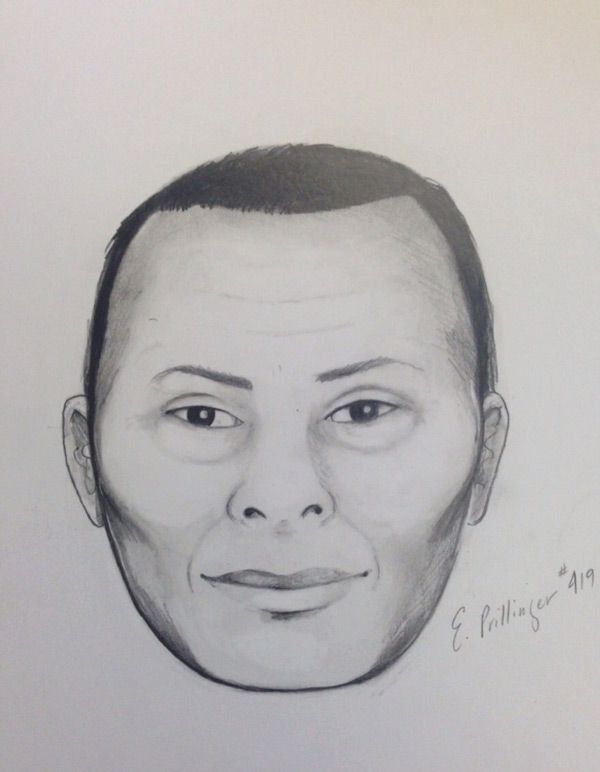
Police served a search warrant on the family apartment and Honda. In the car, under the drivers seat, they found part of a Glock pistol.
Chang was arrested following the search, according to police. Days later, during a phone call from county jail with his mom, Chang mentioned the barrel of a gun and told her to “find Tim,” according to court records.
A search of the contacts in Changs phone revealed more than 1,000 calls and texts with someone named Timothy Y. Chan.
Chan, it turned out, was on probation for a 2011 conviction for possession of an assault weapon. Police got a warrant to search his house on 2nd Avenue in the citys Richmond District. There, they found two guns and two gun boxes with serial numbers on them that traced back to the Hunts.
On one empty box, the serial number matched the Glock part found in Easy Changs Honda.
Another empty box belonged to a Smith & Wesson .38 revolver. That gun fires a round consistent with a slug recovered from the Oueslati crime scene.
No need for ID
Two weeks after the search of Tim Chans home, ATF agents conducted an undercover operation at the Big Reno gun show.
It been two and half years since agent Wallace handed Terry Hunt a letter warning him to stop dealing guns. Yet, there Hunt was: standing behind a table covered with them, his wife Mary at his side.
An undercover agent wearing a surreptitious recording device walked up to the table and negotiated a deal with Terry to buy a Glock .380 handgun for $545, according to a summary of the encounter contained in a federal search warrant affidavit.
Terry told the agent to pay Mary. When the undercover operative offered to show her a drivers license Mary said there was no need. She sold the weapon without conducting a background check or filling out any paperwork.
About 20 minutes later the agent watched as Terry Hunt conducted another transaction with a man who wanted to buy the same make and model of gun. The man told Hunt he did not want to fill out any paper work. He then handed Hunt a wad of cash for the weapon.
The Hunts, one ATF supervisor would later tell CNN, had become “Incorrigible.”
Its not a coincidence
Easy Chang was arrested in October and charged with attempted murder.
Federal authorities turned their attention to Changs friend, Timothy Chan. Already a convicted felon, Chan, then 25, was facing the prospect of federal weapons charges that could carry a stiffer sentence than he might receive in state court. The feds wanted to know what Chan could tell them about the guns.
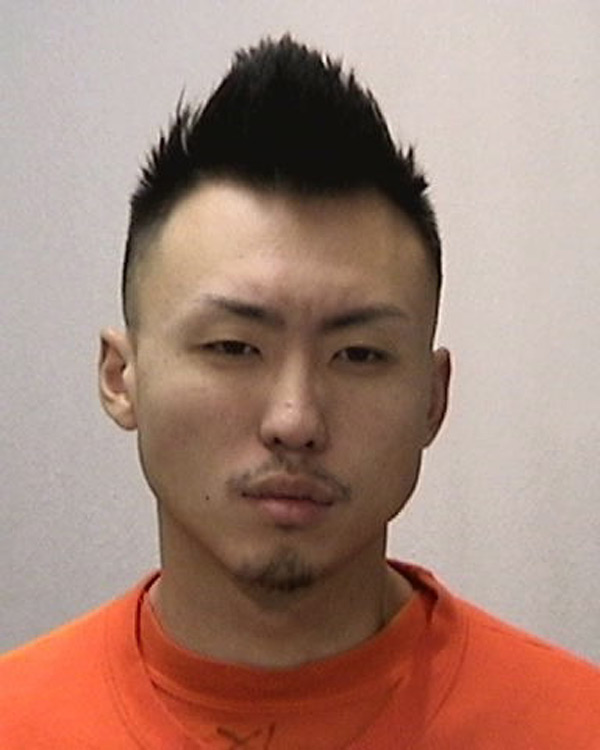
On Dec. 10, 2014, Chan and his lawyer sat down for a meeting lead by Will Frentzen, an assistant US attorney in San Francisco. Sgt. Ly, the SFPD investigator, and an ATF agent were also present, but Frentzen was running the show, according to an audio recording of the two-hour session reviewed by CNN.
Chan was granted immunity from prosecution for what he said, so long as he was truthful.
“Were not in the Tim Chan business,” Frentzen said at one point. “Youre connected to some other things that were interested in. Thats why were talking to you.”
The ATF agent in the room reminded Chan of his 2011 conviction for assault weapon possession and said that a gun in that case and the guns and gun boxes recently recovered from his house “all come from the same place.”
“Theres a pattern,” he said.
Chan eventually acknowledged that his half-brother, Kenny Chee, and uncle, Jack Lee, would sometimes travel to a gun show in Reno, Nevada to buy guns. He joined them at the gun show on one occasion, he said, but they did not buy any weapons on that trip.
Chee, 41, works in the optical department at Costco and runs a fireworks display company at which Tim Chan also works. Chee is also a convicted felon who was sentenced to five years in state prison for shooting a teenager in 1997. Lee owns the home on 2nd Avenue in San Francisco where Tim Chan lives and police found the guns and gun boxes linked to the Hunts.
Chan told investigators he did not know from whom, specifically, his family members had purchased weapons at the gun show in Nevada. Chan and Chee declined to be interviewed for this article through an attorney who represented both men in past cases. Lee, in a brief interview outside his home, told CNN he had not been to the Big Reno gun show in years, but declined to answer questions. “I have nothing to say on that,” Lee said. “Thats in the past.”
At one point during Chans interrogation, investigators showed him a series of photos.
“These are Bay Area people – close by,” an investigator said as he displayed one picture after another. “Would it surprise you that theyve all been caught with guns that have come from the exact same place all your guns have come from?
“Its not a coincidence,” the same investigator added moments later.
The investigators also pressed Chan on whether he met up with Chang in the hours after Oueslati was shot.
Chan initially told investigators he never saw his friend that afternoon. But when confronted with texts indicating that he was waiting outside Easys apartment building about an hour after the shooting and that Easy was on his way down to meet him, Chan changed his story.
He admitted that he saw Easy emerge from his apartment and go grab something from his car.
“Did you see anything in his hands?” one investigator asked. “Was he holding anything?”
“Cigarettes,” Chan answered. He said Easy then went back inside his apartment and that was the last he saw of him that day.
An investigator asked Chan about the whereabouts of the .38 that came from the empty box that traced back to the Hunts. He insisted he had no idea what became of that gun.
Nearly a year later, police ran a computer query on the weapon and discovered that it had been sold by Chans younger brother who was also his roommate at the time, according to records.
The transaction occurred three days after Chans interrogation.
Once police discovered the sale of the .38, they obtained a search warrant and seized the weapon from the buyer. In the warrant affidavit, Sgt. Ly wrote that he suspected Chang of using the gun to shoot Oueslati.
Police had it tested against a slug recovered from the scene, but it came back inconclusive – the weapon could neither be confirmed nor eliminated as having fired the bullet.
A duffel bag full of guns
As the Hunt grandchildren were getting ready for school on Nov. 13, 2015, armed ATF agents raided the family ranch. They seized dozens of guns from three homes on the property.
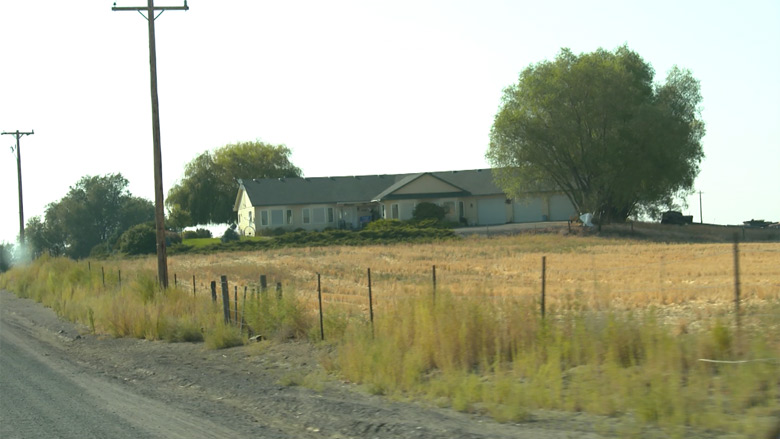
Federal prosecutors in Spokane charged Terry, Mary and their adult sons Rusty and Derek with being unlicensed gun dealers, a felony that can result in prison time.
The case, which received coverage in the Wenatchee World and other local media outlets, “resulted in much shame and embarrassment” for the family, Terry Hunts lawyer would later write in a court filing.
Prosecutors accused the Hunts of selling approximately 465 guns worth more than $270,000 at the Big Reno gun show after the 2012 warning was issued. They intentionally catered to people who were prohibited from purchasing firearms for one reason or another, prosecutors alleged.
On several occasions, Terry Hunt had paid a friend to act as a so-called straw purchaser and buy guns on his behalf, according to court records. That man was described in court papers as an anticipated witness for the government.
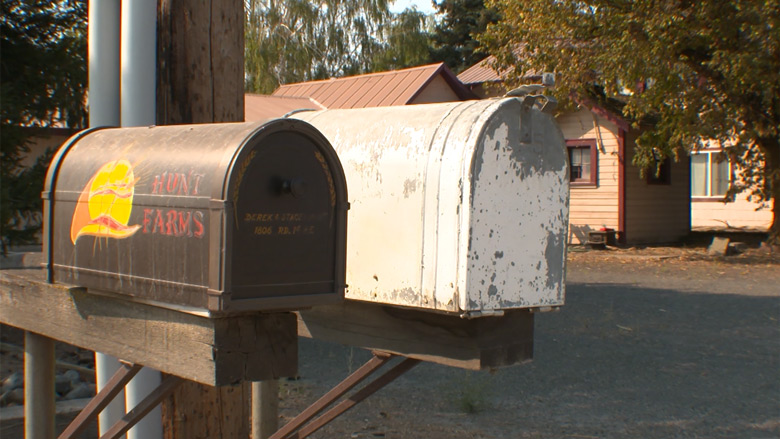
Prosecutors also expected another person to testify: A man identified in court papers by the initials M.O. CNN has identified him as Michael Odello, a construction manager and one-time high school softball coach from the upscale seaside city of Carmel, California.
Odello, a gun enthusiast and avid hunter, met the Hunts at the Big Reno gun show in the late 80s. He became friendly with the family and helped them set up for shows from 2008 through 2012.
He also purchased multiple guns from “one or more” Hunt family members, including some weapons that were illegal in California, according to court records. Authorities used this as leverage to get him to cooperate.
Odellos statements to investigators were summarized by prosecutors in a court filing: He told agents the Hunts would purchase weapons they knew would be “hot sellers” in advance of gun shows. They offered the lowest prices and “never did paperwork.” For these reasons, Odello said, they made a profit even when business was slow.
He said 90 percent of the familys business came from repeat customers, including a group of “Asian males” with whom the normally chatty Hunts were “business oriented and not social.”
Odello said he witnessed the Asian men buy as many as 15 handguns — new and in the box — at one time. He saw five or six such transactions over the course of a single weekend.
The Hunts sometimes conducted clandestine transactions “they did not want viewed from the [gun show] floor,” Odello told agents, according to the summary.
On one occasion in 2010, he said, he allowed Rusty Hunt to use his hotel room to conduct a deal with one Asian man. Odello said he watched as Hunt emptied a duffel bag full of guns onto the bed – approximately ten guns, new and in their boxes, worth about $6,000.
He said the unidentified Asian male agreed to buy the weapons and handed Rusty Hunt an envelope full of money.
All federally licensed gun dealers must run checks on each buyer, but the rule doesnt apply to nonprofessional sellers.
As the case headed for trial, prosecutors sought to present evidence of firearms recoveries they said were the end result of the Hunts alleged illegal gun dealing. At least 16 weapons, they wrote, were sold after the 2012 warning and later turned up at “crime-related scenes” across the Bay Area and as far away as New York City.
They even prepared a “mafia-style chart” showing the flow of firearms with the Hunts at the top, according to one court filing.
In the end, however, the years-long probe into the Hunts gun sales ended with more of a whimper than a bang.
In September of 2017, the Hunts agreed to plead guilty, but to a lesser, obscure-sounding misdemeanor charge called aiding and abetting a false entry by a firearms dealer. The agreement centered on the straw purchases in which Terry Hunt paid a friend to purchase guns on his behalf as part of the familys “conspiracy to illegally sell firearms without a federal firearms license.” But the deal required no prison time. Each family member was sentenced to five years of probation.
The deal was struck, in part, due to misleading wording on an ATF gun dealer application that incorrectly stated that people selling guns only at gun shows need not apply for a federal firearms license.
Despite the warning delivered by the ATF agent in 2012, Terry Hunts lawyer would argue years later that his elderly client was confused by what the agent told him and the seemingly contradictory language on the application she handed him.
That language has since been changed.
This was a hobby
Sitting in a Starbucks in his hometown of Carmel, California one morning in November, Odello quietly scanned the seven-page court filing that summarized what the ATF says he told them about the Hunts.
After a few minutes reading, he slid the document back across the table to a CNN reporter, confirming its contents. The look on his face suggested an unpleasant memory.
Odello, who was named “Coach of the Year” for the Carmel High School softball team in 2016, went on to recount how he found himself in the crosshairs of a federal gun probe that same year.
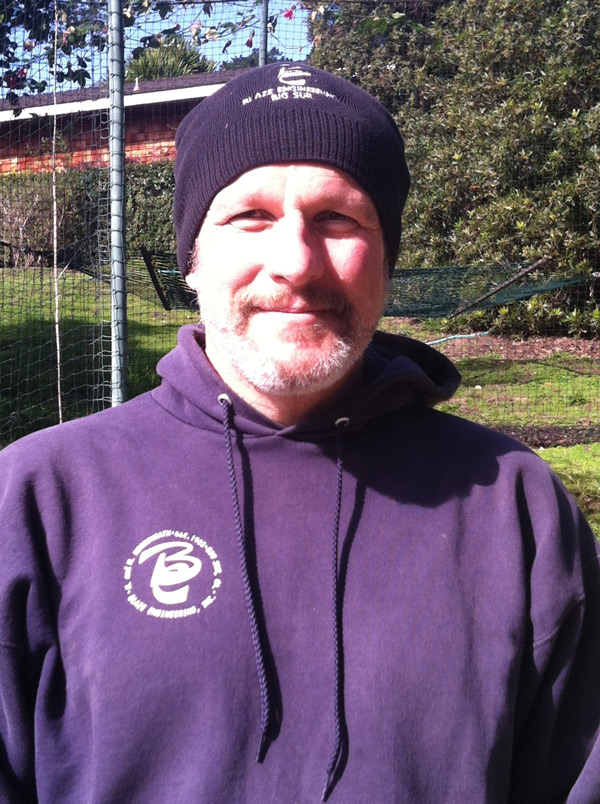
Though hed helped the Hunts at Big Reno gun shows for years, he said he had no idea that Terry Hunt had been warned by the ATF in 2012. In retrospect, he said there were aspects of the familys gun sales that were “kinda shady,” and that he regrets his involvement. Odello identified Kenny Chee and Jack Lee from photos provided by a reporter and said he recognized them from their dealings with the Hunts. Neither man was ever charged in connection with the Hunts gun sales. Nor was Chan.
Odello said the Hunts are good people whom he still considers friends. He said he has hunted on their property in the past and hopes to do so again.
“I have to think they fell in love with the money and that overrode their judgment,” he said.
Odello made clear in a separate telephone interview that he was a reluctant witness against the family.
“The government dragged them through a lot,” Odello said, “and they tried to drag me down the same hole.”
Despite his friendship with the Hunts, “when the ATF came to me, I had to tell the truth,” he said. “I was very careful as to what I said to those guys. I didnt want to lie to them.”
CNN reached out to the Hunt family in emails and through phone calls to various family members and their attorneys. Reporters also travelled to the family ranch in Coulee City and spoke briefly with Derek Hunt. He said the family did not wish to discuss the case or make any comment.
In court papers submitted prior to sentencing, Terry Hunts attorney, Richard Bechtolt, argued that Hunt did not see himself as a gun dealer, based on the language in the federal statute cited in the ATF warning letter.
The statute says anyone “engaged in the business” of selling firearms requires a license. “Engaged in the business” is defined as devoting “time, attention and labor to dealing in firearms as a regular course of trade or business with the principal objective of livelihood and profit through the repetitive purchase and resale of firearms.”
The law states that it does not apply to someone engaged in only occasional gun sales or collectors or hobbyists adding to, or selling from, their personal collection. Nor does it place a set number of transactions that differentiates between a person “engaged in the business” and one who makes “occasional sales.”
“To Mr. Hunts way of thinking,” Bechtolt wrote, “he did not engage in the sale of firearms for livelihood and profit as his occupation was a farmer and this was a hobby.”
The lawyer did not address the verbal warning Agent Wallace gave Hunt about selling to people not from his own state and buying guns in his own name with the intent of selling them. Original Article
[contf] [contfnew] 
CNN
[contfnewc] [contfnewc]
